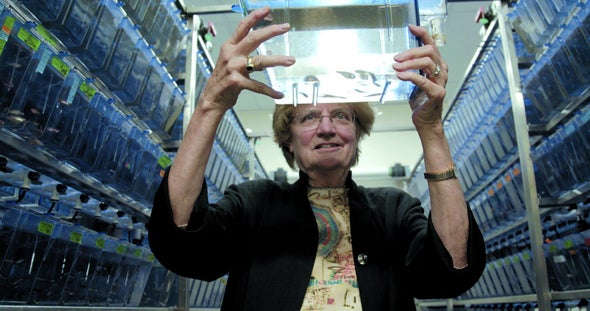Picture a Scientist
by Sharon Shattuck and Ian Cheney
Visit pictureascientist.com for screenings
In limited release, starting June 12, 2020
Overt sexual advances are just one form of harassment against women in the sciences; the bulk of offenses are made up of quiet acts of discrimination and bullying that accumulate over time. This essential documentary by filmmakers Shattuck and Cheney gives disturbing first-person accounts of such abuse and mistreatment by prominent male researchers—from the rocky fields of Antarctica to the genetic laboratories of Harvard—and offers a powerful contribution to the larger conversation about inherent bias, unseen prejudice and personal accountability. The film uniquely captures the emotion of the battle that women in science—especially women of color—have had to wage simply to do the work they love. It is a stark reminder that although some progress has been made, equal representation—and treatment—in research science has a long way to go.
The End of the River: Why the Long Struggle to Hold Back the Mississippi May Soon Be Lost, Wreaking Trillion-Dollar Chaos across the American South
by Simon Winchester
Scribd Originals, 2020
(by subscription)
In the early 1800s people began straightening the Mississippi River to make it more navigable and to control flooding. Now, in a stretch at the border of Louisiana and Mississippi, the water, inclined to follow the easiest path to the sea, is straining to jump over its human-made channel and into the neighboring Atchafalaya Basin. If it does, the downstream remnant passage of the Mississippi will stagnate, disrupting ports and city water sources. In this slim volume, writer Winchester describes how human hubris caused this predicament, as he explores the engineering feats that are struggling to keep the river in place. The situation, he writes, has turned the waterway into “the nation's Achilles' heel.” —Andrea Thompson
Six Days in August: The Story of Stockholm Syndrome
by David King
W. W. Norton, 2020 ($26.95)
American historian and author King shares remarkable on-the-ground details of the famed Norrmalmstorg robbery of 1973 in this smart cross between a true-crime thriller and a psychological investigation. During the nearly weeklong ordeal, Jan-Erik Olsson held four people hostage in a Stockholm bank and demanded his friend, career criminal Clark Olofsson, be released from prison and brought to the scene. In the event's aftermath, the hostages reported surprisingly fond feelings for their captors, inspiring the term “Stockholm syndrome.” Use of the expression is still widely popular, although little research exists. Some suggest it confuses hostage allegiance to a captor with the desperate need to survive. Others allege that because the incident involved three women hostages, misogynist biases led psychologists to label these victims with an illness.
The End of Everything (Astrophysically Speaking)
by Katie Mack
Scribner, 2020 ($26)
The cosmos might end by drifting into uniform chaos. Or the finale could involve an expanding bubble universe with new laws of physics. The very space between galaxies, stars, planets and atoms may even spread so much that it rips everything apart from within. If the world's current troubles weren't worrying enough, astrophysicist Mack offers a whirlwind tour of our possible demises and what investigating the options can reveal about physics. Through informal but rigorous prose, she describes the weird wrinkles and implications of these potential endings—for instance, how expansion makes the most distant galaxies actually look larger or how quantum changes could prompt new physical laws—and what they would look like from our only vantage point. —Sarah Lewin Frasier



